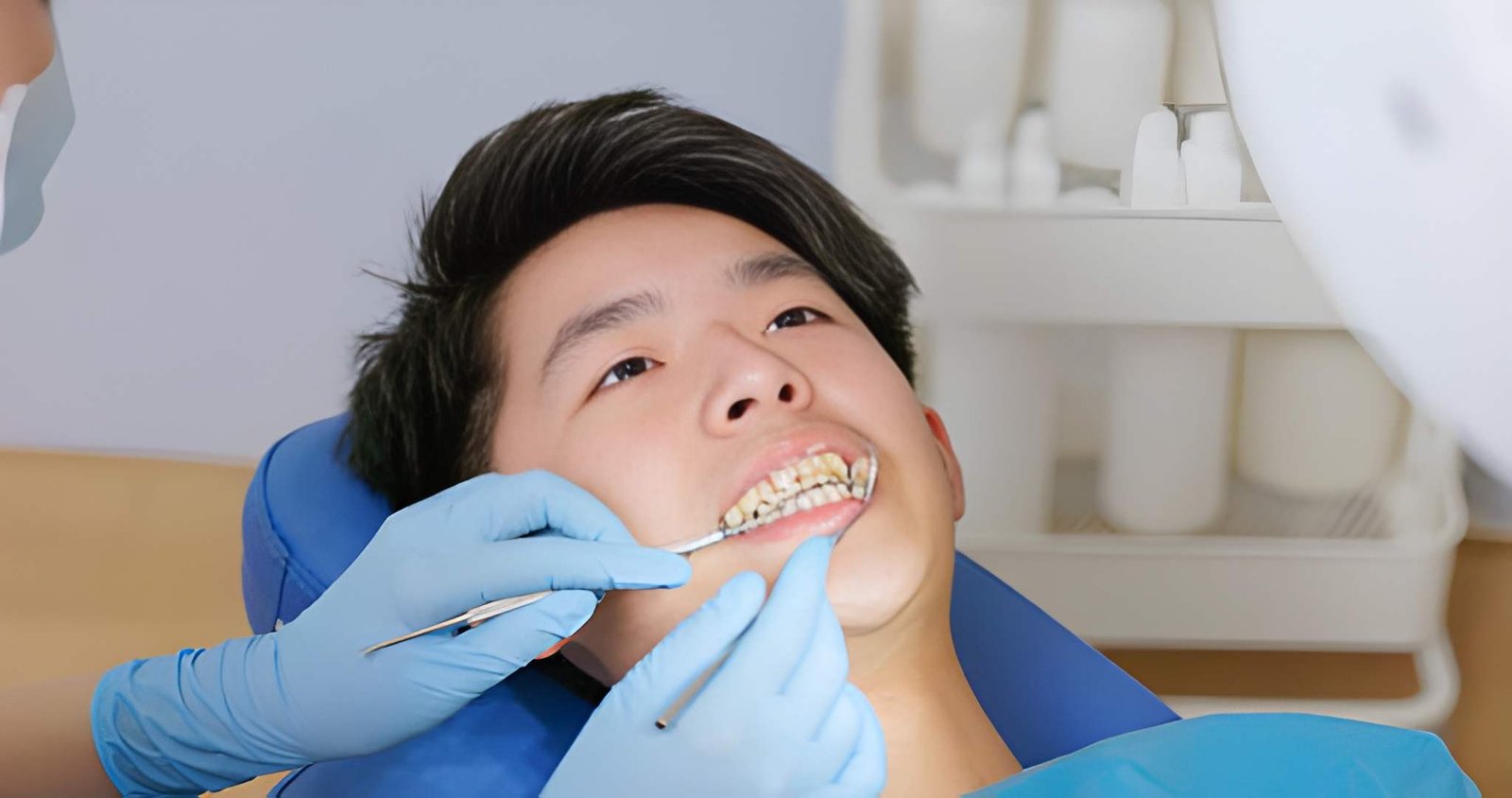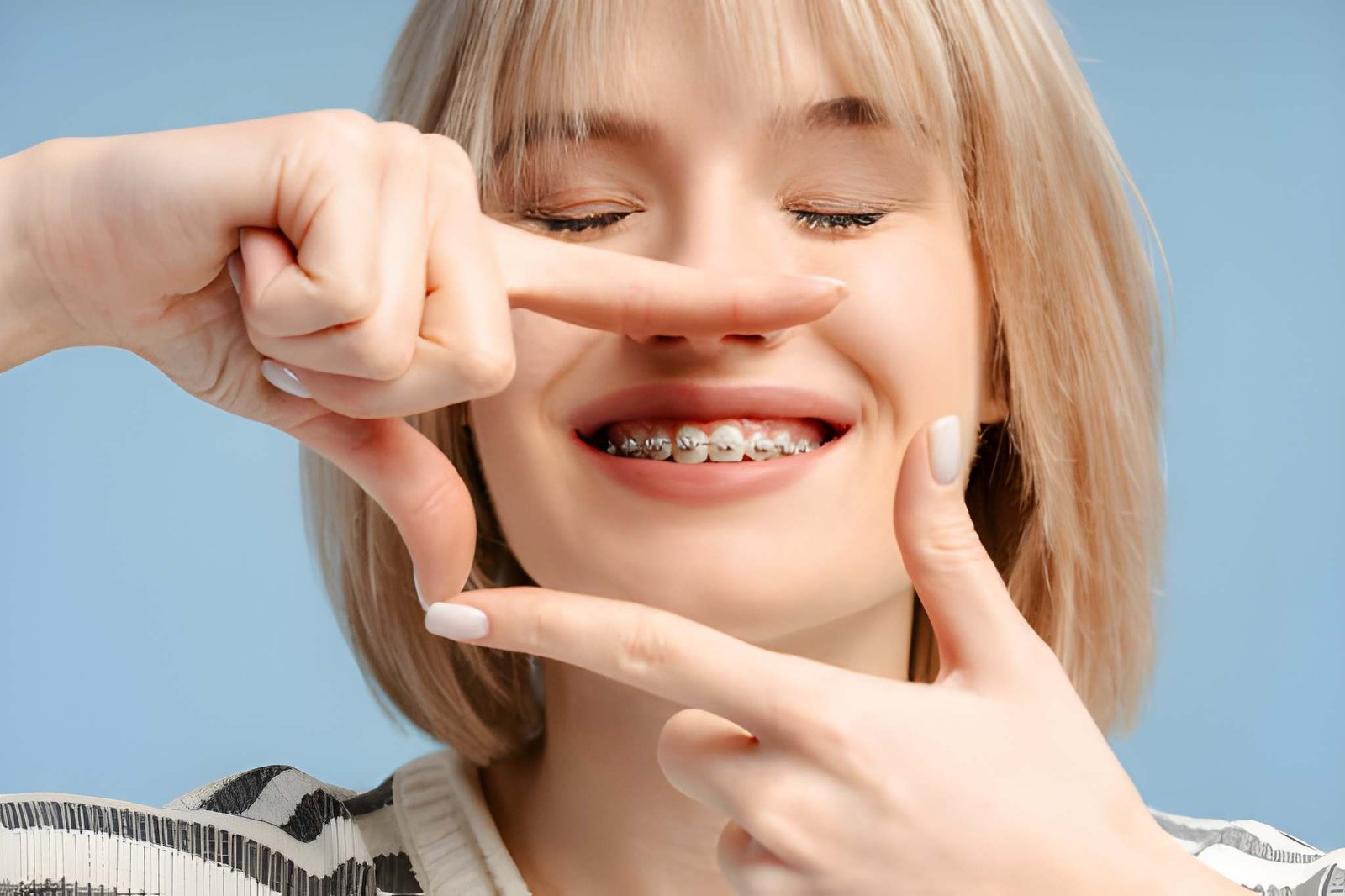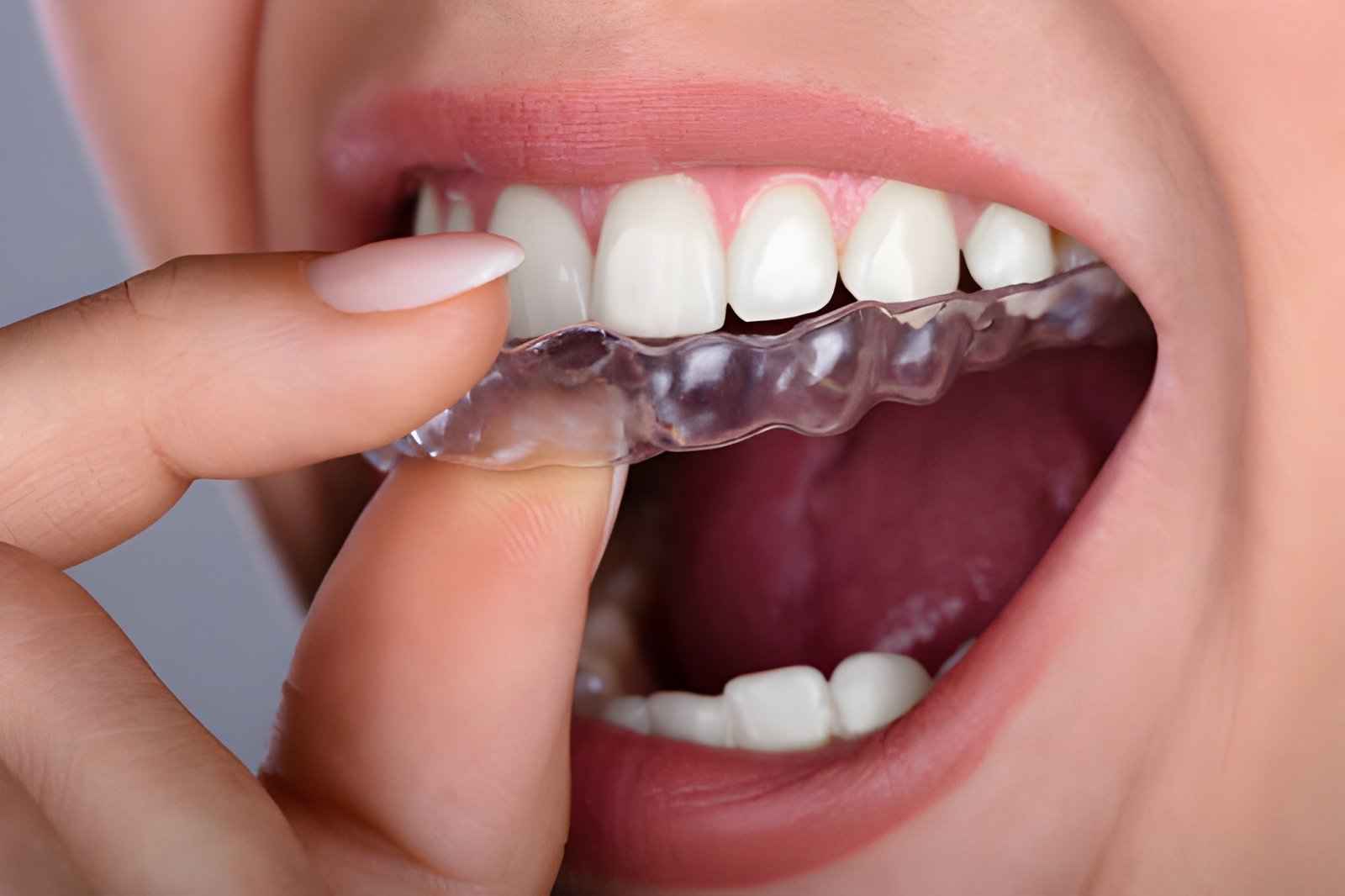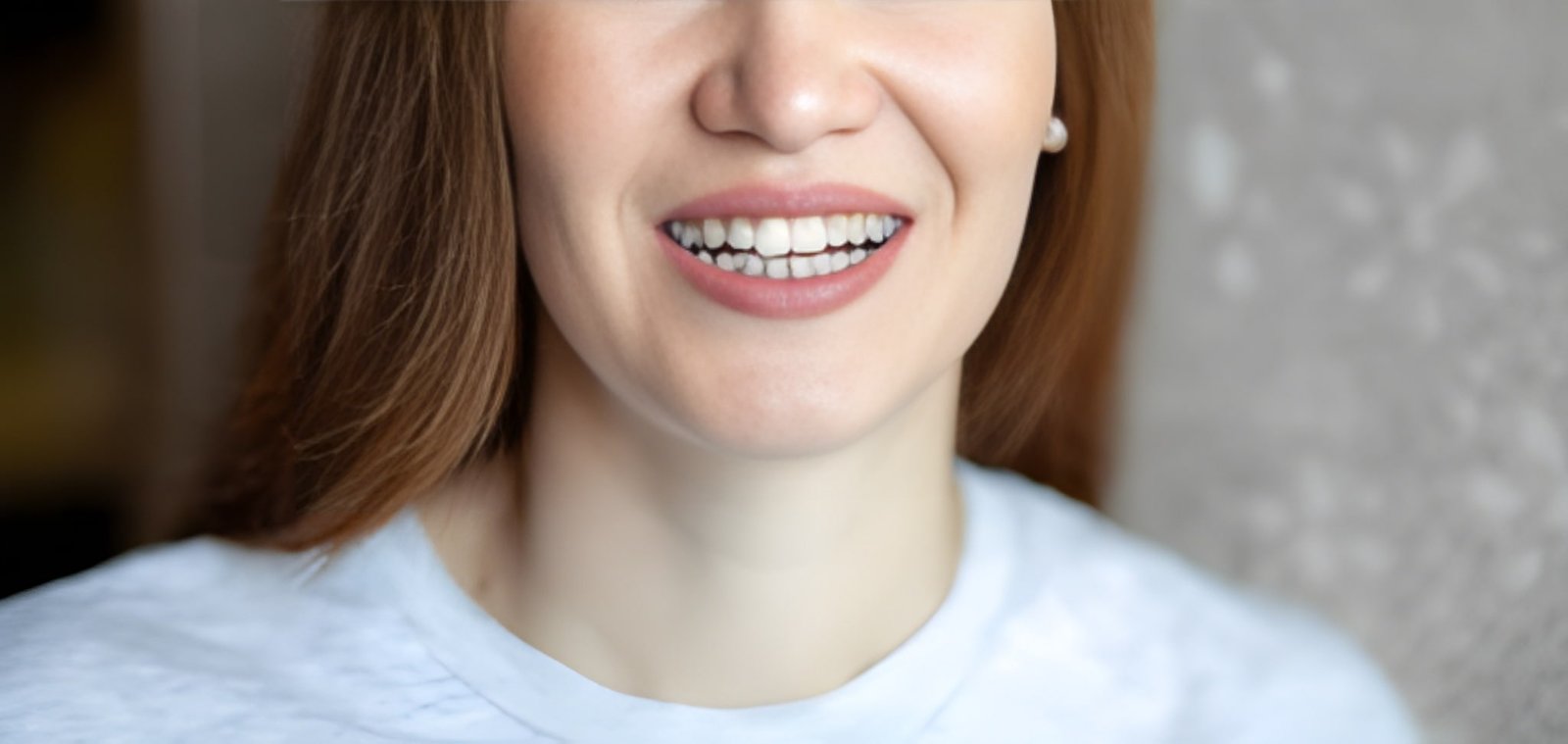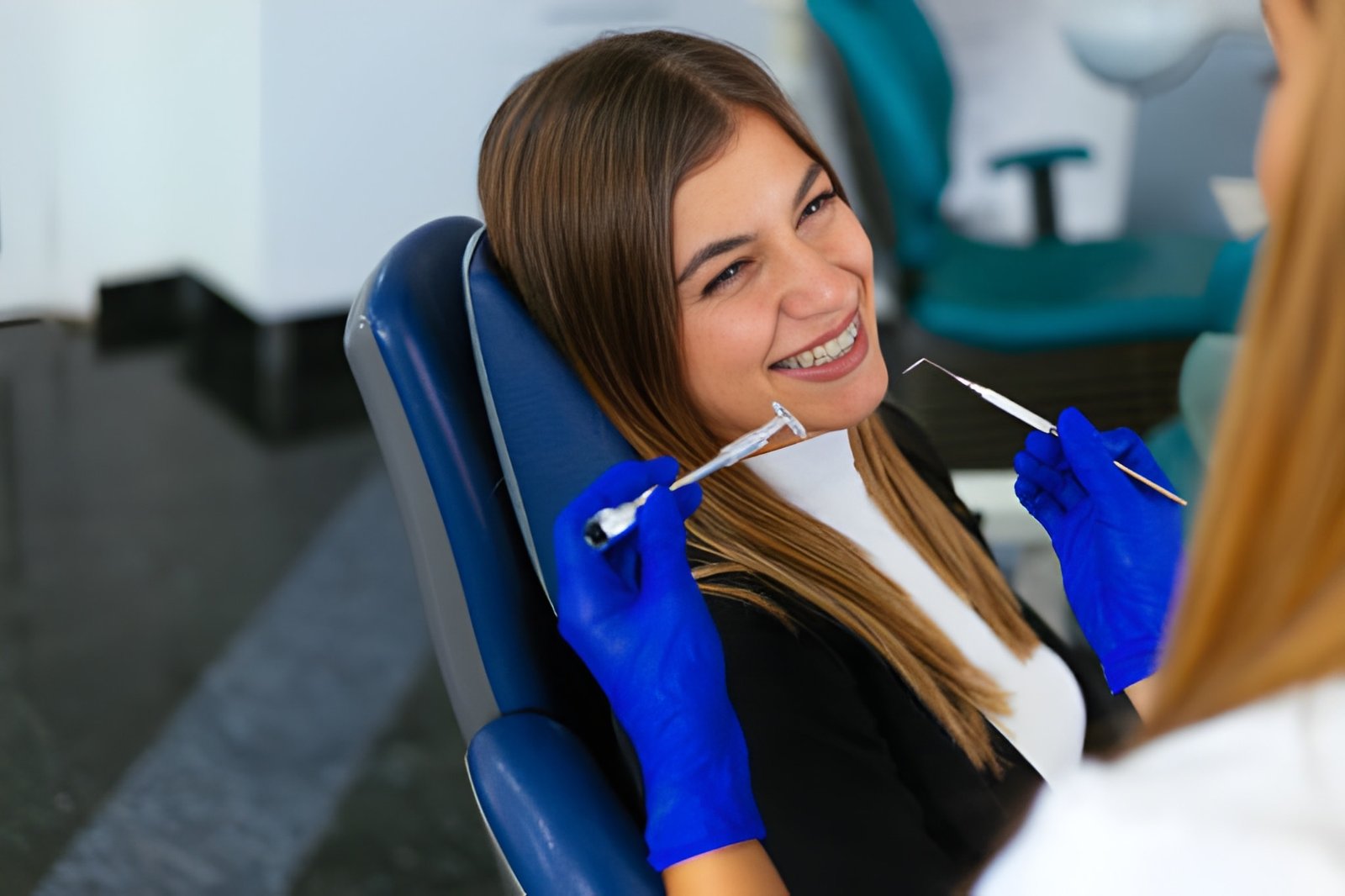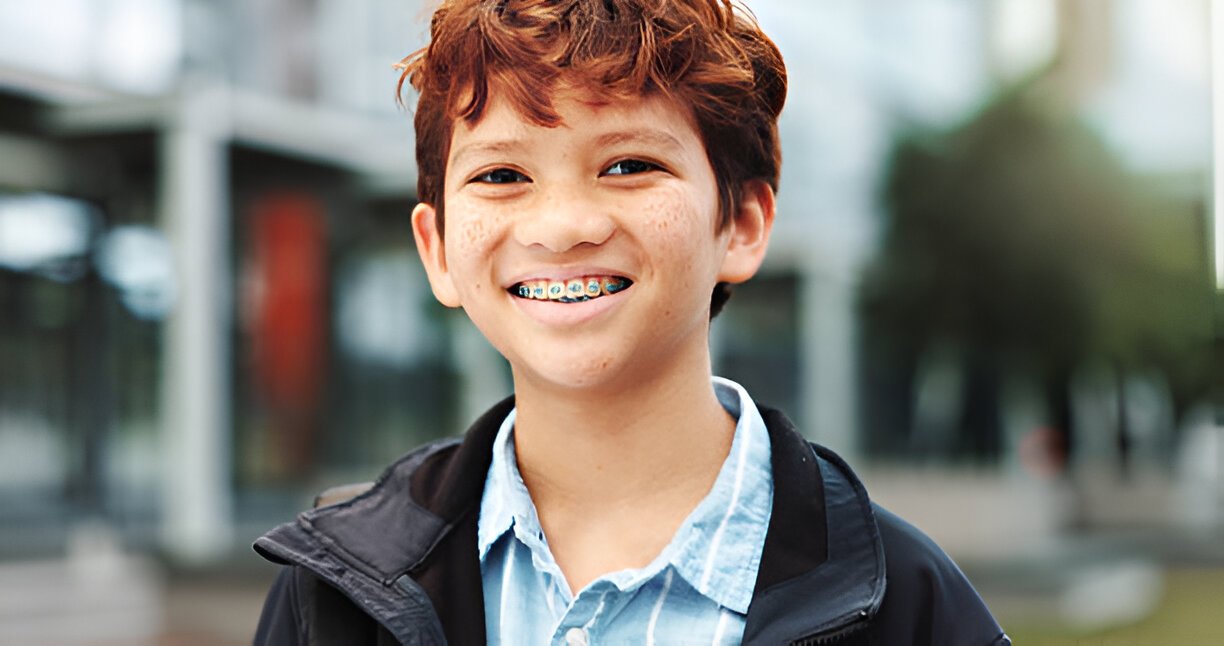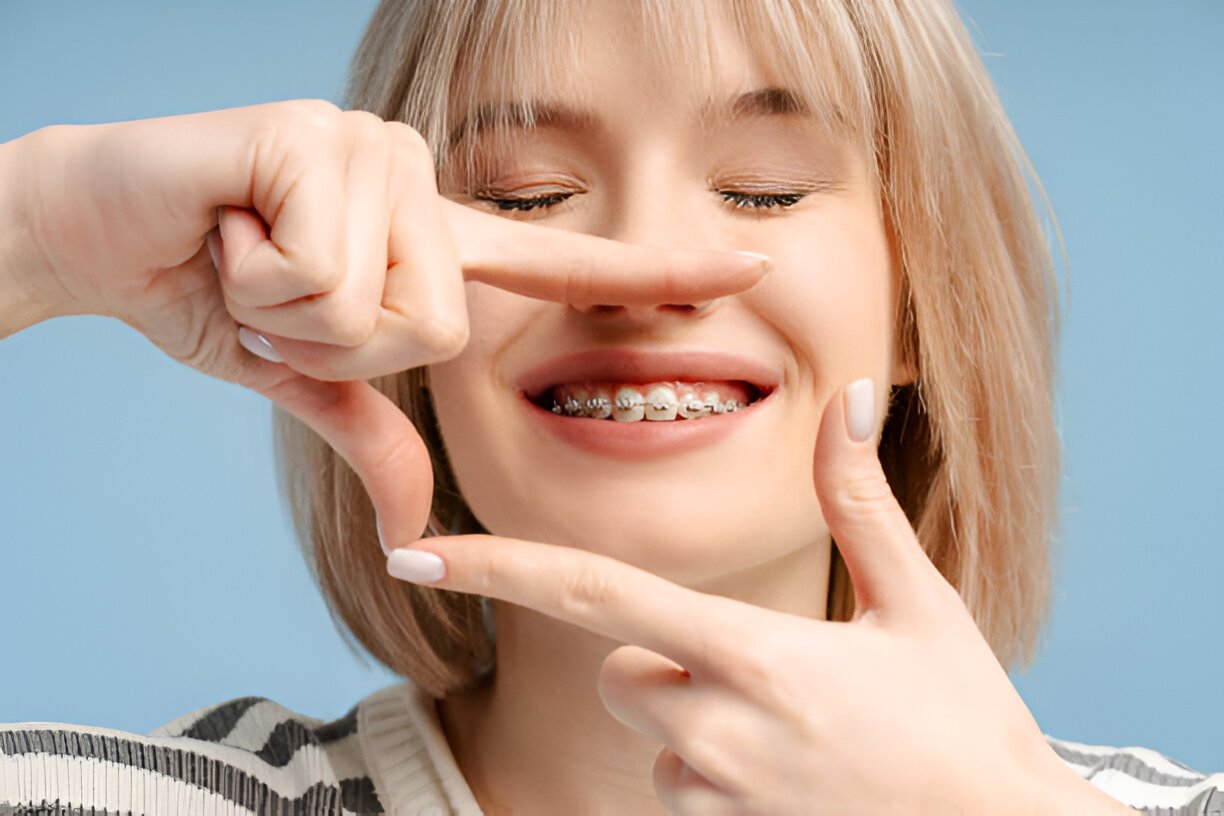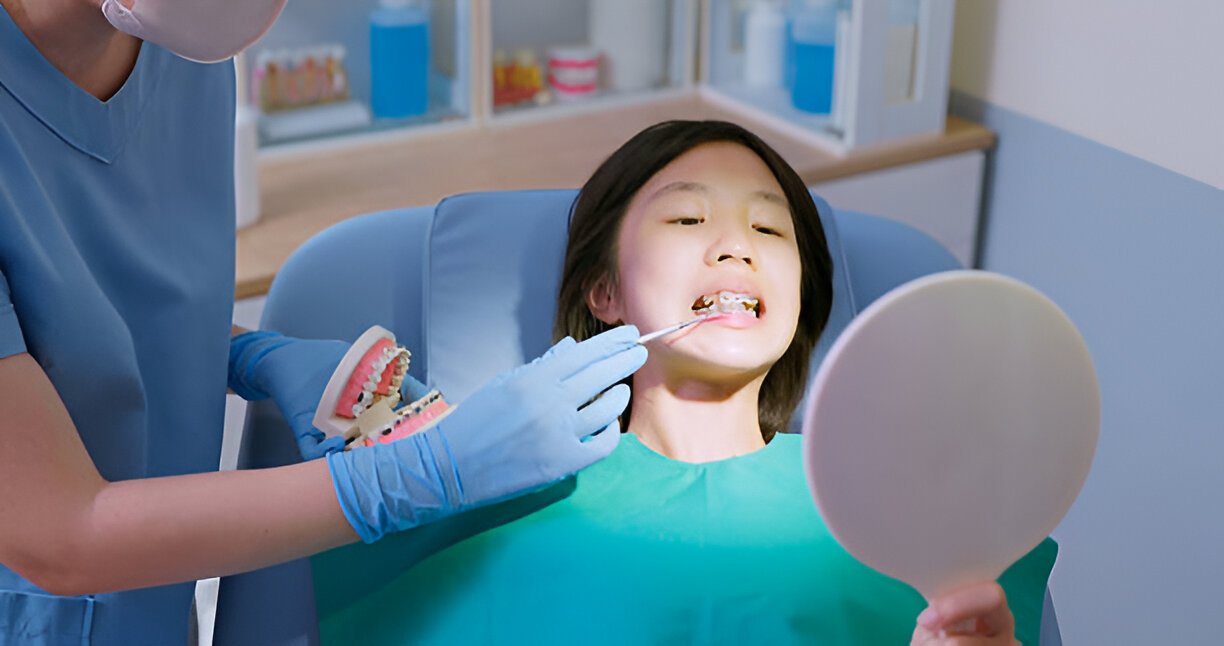Braces are a common way to straighten teeth and improve your smile. If you’re thinking about getting braces, you might be wondering, “Do braces hurt?” It’s a normal question. The short answer is – yes, braces can cause some discomfort, but the pain is usually mild and temporary. In this article, we’ll walk you through when braces might hurt, what kind of pain to expect, and how to manage it easily at home.
What Does It Feel Like When You First Get Braces?
When you first get your braces fitted, your mouth goes through a big change. Your orthodontist attaches brackets to your teeth and connects them with wires. This starts to move your teeth gently into new positions. You won’t feel sharp pain, but your teeth might feel sore or tight within a few hours.
This discomfort is completely normal and happens because your teeth are starting to shift. Your lips, cheeks, and tongue might also feel sore from rubbing against the new brackets. The good news is that most people get used to this feeling after a few days.
Do Braces Move Your Teeth Every Day?
Do Braces Hurt When Tightened?
Every few weeks, you’ll need to visit your orthodontist to have your braces adjusted. During this visit, the wires may be tightened or changed to keep your teeth moving in the right direction. This can cause mild soreness again, much like when you first had your braces put on.
The pressure helps shift your teeth, but it may lead to tenderness in the teeth and gums for a day or two. Some people feel it more than others, but the pain is still manageable. It often feels like a dull ache rather than sharp pain.
What About Braces That Rub or Break?
Sometimes, a wire might poke the inside of your cheek or a bracket may feel rough. This can lead to small sores or cuts inside your mouth. Occasionally, wires or brackets can come loose, especially after eating hard or sticky foods.
If this happens, don’t worry. You can use orthodontic wax to cover the area and stop it from rubbing. If a wire breaks or something feels painful for too long, it’s best to see your orthodontist. They can fix it and make sure your treatment stays on track.
How Long Do I Have to Wear Braces?
How Long Does the Pain Last?
The pain or discomfort from braces usually doesn’t last long. After your first fitting or adjustment, soreness often fades within 3 to 5 days. Some people find it goes away even faster.
It might take a week or two for your mouth to fully adjust to the feeling of braces. Over time, most people barely notice they’re there. If you’re ever unsure, it’s always okay to ask your orthodontist for advice or reassurance.
Easy Ways to Relieve Braces Pain at Home
There are lots of simple ways to ease the discomfort caused by braces:
- Eat soft foods like yoghurt, soup, mashed potatoes, and smoothies. Avoid hard or crunchy snacks that can press on sore teeth.
- Use orthodontic wax over any brackets or wires that rub against your cheeks or lips.
- Take over-the-counter pain relief, such as paracetamol or ibuprofen, if needed. Always follow the instructions on the pack.
- Rinse your mouth with warm salt water (1 teaspoon of salt in a glass of warm water) to help heal any small sores.
- Apply a cold compress to the outside of your mouth to reduce swelling or tenderness.
- Avoid acidic or sticky foods like citrus fruit, sweets, and chewing gum. These can make irritation worse.
With these tips, most people can manage any pain and carry on with their usual routine.
What is a Good Age to Get Braces?
Does Everyone Experience the Same Level of Pain?
Not everyone feels the same kind of discomfort. Some people only feel a little pressure, while others might feel more sensitive. Your pain level depends on how your mouth reacts to the movement and how sensitive your teeth are.
Some also find that bottom braces can feel more uncomfortable, especially as the tongue often touches them more often. It can take a few days for your mouth to adjust, but once it does, things will feel much easier.
Why Do Braces Cause Discomfort?
Braces work by gently moving your teeth into better positions. This pressure causes the tissues around your teeth to stretch and adjust. It also encourages your bones to change shape to hold your teeth in their new places.
All this movement can cause a dull ache, much like how your muscles might feel sore after exercise. It’s a sign that your braces are doing their job!
When Should I See My Orthodontist?
You’ll have regular check-ups, but you should book an earlier visit if:
- A wire or bracket breaks or feels sharp
- The pain is severe or doesn’t go away after a few days
- You’re having trouble eating or speaking
- You notice swelling, bleeding, or signs of infection
Your orthodontist is there to help you feel comfortable throughout your treatment, so don’t hesitate to ask for help.
Final Thoughts: Is It Worth It?
Yes – even though braces may cause some mild pain, the benefits are worth it. A straighter smile, better bite, and improved confidence are all long-term rewards. With simple at-home care and support from your orthodontist, any discomfort is easy to manage. For those seeking the best braces Aberdeen has to offer, choosing a trusted local provider ensures expert care throughout the journey.
Remember, it’s a journey, and every small ache is a step toward your best smile.
Start Your Smile Journey with Visage Orthodontics Aberdeen
If you’re considering braces and want expert care in a comfortable, friendly environment, Visage Orthodontics Aberdeen is here to help. Our experienced team specialises in providing tailored orthodontic treatments for both children and adults. We understand that the idea of braces can feel overwhelming, especially if you’re worried about discomfort — but you’re not alone.
At Visage Orthodontics, we’ll guide you through every step, from your initial consultation to your final retainer. Whether you’re exploring traditional braces or more discreet options, we’re committed to delivering results that boost your confidence and support your long-term oral health.
Book your consultation today and take the first step towards a straighter, healthier smile with Visage Orthodontics Aberdeen — where patient comfort always comes first.
Frequently Asked Questions
Do braces affect how I talk at first?
Yes, some people notice a slight lisp or change in speech during the first few days. Your tongue just needs time to adjust. Most speech issues disappear quickly as you get used to the braces.
Can I play sports with braces on?
Absolutely. Just make sure to wear a mouthguard to protect your braces and teeth from injury. Your orthodontist can provide a suitable guard designed to fit over your braces safely.
Do braces cause headaches or jaw pain?
Mild headaches or jaw discomfort can happen due to pressure during adjustments. It’s not common, but if it occurs, over-the-counter pain relief and soft foods usually help. Speak to your orthodontist if it continues.
Can I sleep comfortably with braces?
Yes, although the first few nights may feel a little odd. Using orthodontic wax and taking mild pain relief can ease discomfort. Most people sleep normally after the first week.
Will braces hurt more as I get older?
Pain levels are more about sensitivity than age. Teenagers and adults alike may feel similar pressure and tenderness. The good news is that discomfort lessens as your mouth gets used to the braces.

